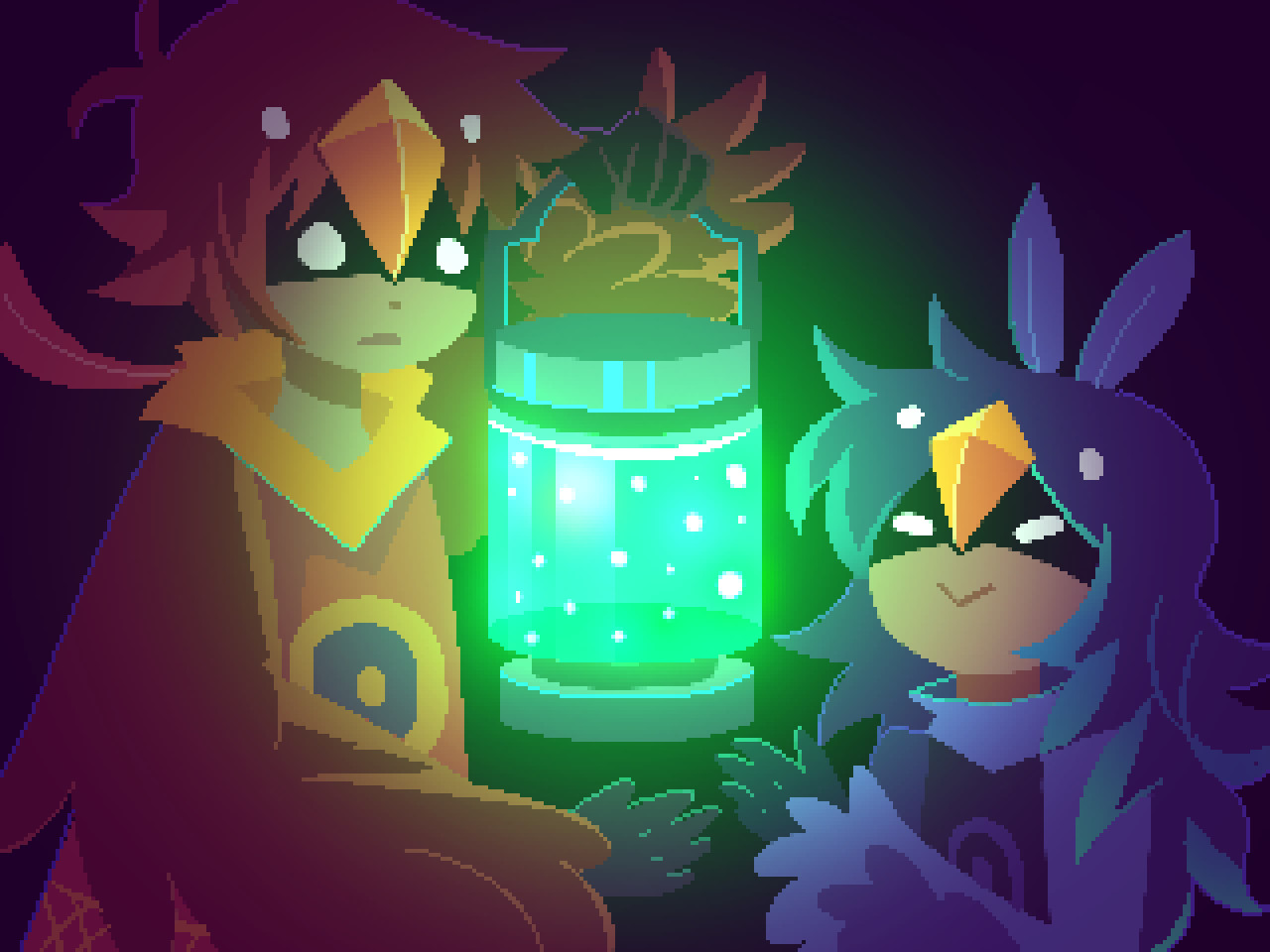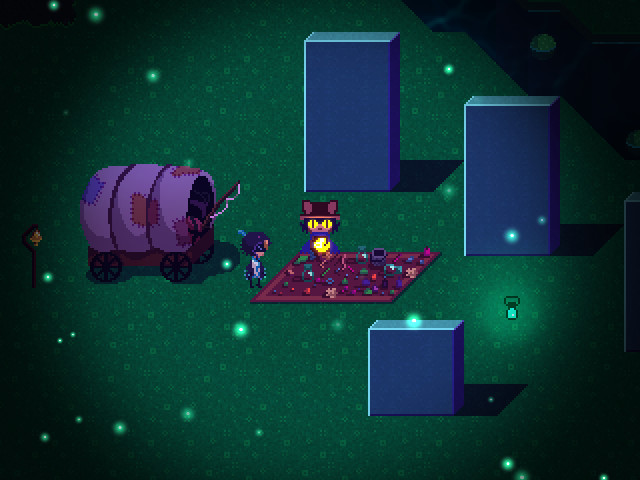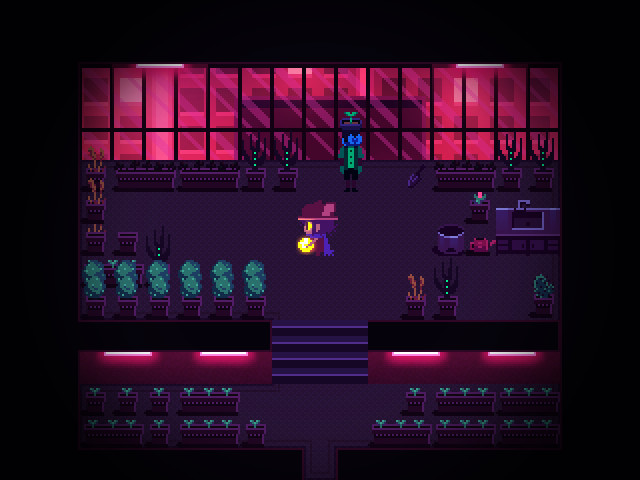OneShot is a bizarre adventure game full of fourth-wall-breaking moments
The developers call it a "metaphysical puzzle game." Remember Psycho Mantis?

The moment that summed up my time with OneShot—a gloomy, top-down adventure game from developers Eliza Velasquez and Casey Gu—was when the player-controlled anthropomorphic cat at the center of the story turned to the camera and asked me, by name, where I grew up. As it turns out, the moniker I punched in at the start of the demo wasn't the simple practice of naming a save file or christening the main character. No, I was simply telling OneShot who I was, and the game was happy to do with that information as it pleased.
"In the full version it's even better because we use your Windows profile name," says Velasquez. "You don't enter your name, it just tells you your name."
This is the essence of OneShot. Its quirks and wrinkles are all bent on fucking with the player as effectively as possible. Velasquez tells me one of her biggest influences was Psycho Mantis from Metal Gear Solid. If you're unfamiliar with the character, Mantis was built to be a mind-reading psychopath and one of the true foils of the unflappable Solid Snake. He also had the power to scan your Playstation memory card. “You like Castlevania, don’t you?” It’s one of the most famous fourth-wall-breakings in video game history, and almost two decades later, it’s still a pretty good trick.

OneShot's version of this is more subtle and player-driven. Here's an early, and potent, example. I came in possession of a scrap of translucent film, the only hint being that I need to "expose it to the void" in order to unlock its true secrets. The OneShot universe is exceptionally dark—a subterranean limbo full of grim apartments and confused characters. I thought for sure that, eventually, I’d come across some sort of mythic nodule of darkness that would decode the puzzle point me forward. Nope. Not even close.
Instead, the secret to developing the film is to literally use your cursor to grab the window where the game is running on your desktop, tug it off your screen for a few seconds, and then bring it back to the surface. Voila, the film is developed, and you've learned that everything—literally everything—is in play.

OneShot promises to break those conventional design rules over and over again. They’re calling it a "metaphysical puzzle game,” something that truly encourages you to experiment with weird stuff. But it also thrills when it's not trying to blow your mind. OneShot’s characters are vivid and the writing is hilarious; it'll take you about 15 minutes to step into the living room of a man with a potted plant for a head, who will regale you with the botanical characteristics of the fauna you'll come across during your journey. The sprite work is also deliberate and evocative—enormous magenta cityscapes, melancholy alleyways, ghoulish suburban cells—which pairs nicely with the heavy, eerie, and groovy synthwave score.
Honestly, the vibe I was picking up most was Undertale, but Eliza told me, in a slightly aggrieved tone, that the first version of OneShot existed long before that quirky RPG took over the world. Thank god, because a Battle Royale controversy for weird, darkly comic indie Earthbound disciples isn’t what anyone wants. OneShot is available on Steam right now, and it’s at the top of my list when I get back from this weekend's Indiecade expo.
Keep up to date with the most important stories and the best deals, as picked by the PC Gamer team.
We're at Indiecade in LA this weekend, checking out everything the festival has to offer. Click here for more of our stories from the event.

Luke Winkie is a freelance journalist and contributor to many publications, including PC Gamer, The New York Times, Gawker, Slate, and Mel Magazine. In between bouts of writing about Hearthstone, World of Warcraft and Twitch culture here on PC Gamer, Luke also publishes the newsletter On Posting. As a self-described "chronic poster," Luke has "spent hours deep-scrolling through surreptitious Likes tabs to uncover the root of intra-publication beef and broken down quote-tweet animosity like it’s Super Bowl tape." When he graduated from journalism school, he had no idea how bad it was going to get.

